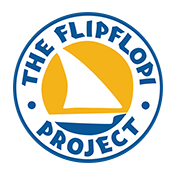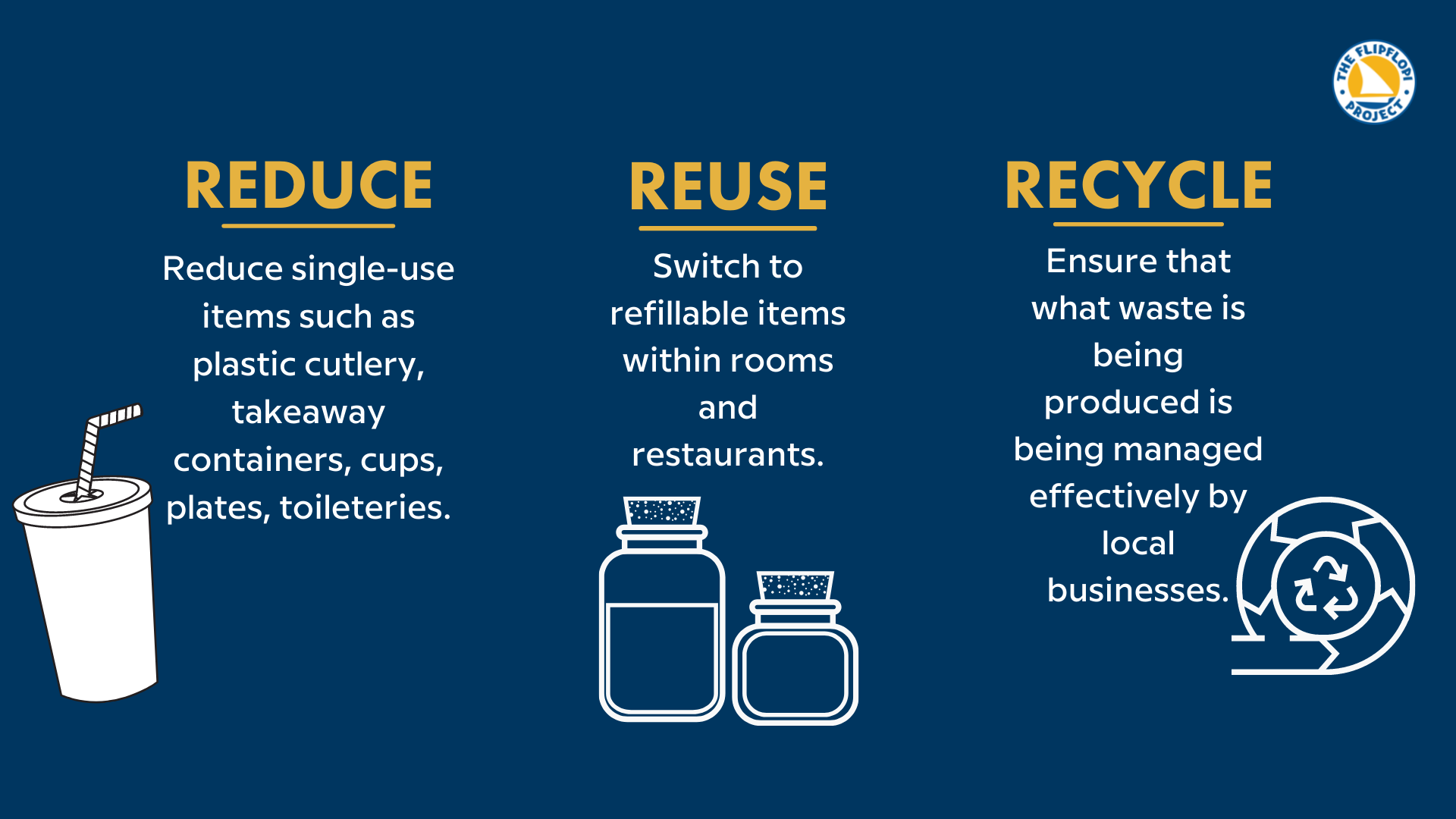The Route to Single-Use Plastic Free
By Hannah Evans
Over half of all plastics created are designed to be used only once. After that fleeting use - sometimes for as short a time as 15 minutes - they are to be disposed of. But disposed of where exactly?
It’s clear while walking the streets of Nairobi or along the beaches of the Kenyan coast that at least in Kenya, there is no efficient way to dispose of those plastics. This mismanaged waste is then left to destroy environments, degrade land and destroy ocean biodiversity.
The tourism industry is huge in Kenya. Annually roughly 2 million tourists are attracted to Kenya’s pristine beaches, wild savannahs and myriad lakes. However, by increasing visitor numbers to these areas, more pressure is placed on often next to non-existent waste management systems.
We all need to do more to try and protect our environments though we are now beyond individual action. With support and action from large and international industries such as the tourism industry businesses, we can do more to protect the environments that businesses profit from by making sustainable and conscious choices and supporting local businesses and industries working within environmental protection.
Single-use products are still created and consumed widely with little to no sustainable alternative available. Yet with industry and consumer support, we can begin to turn the tide on plastic and make the switch to more sustainable alternatives.
Below we will outline opportunities for businesses and industries to follow to begin making more sustainable choices to reduce our reliance on single-use plastics.
How single-use plastic bans have made progress
Across the world, single-use plastic bans have been introduced to limit plastic use. In 2019, 170 countries pledged to significantly reduce plastic use by 2030 and many are doing so by imposing strict bans. Within Africa, there are already 34 different types of plastic bans in place with more in the pipeline for the future.
These bans and the hundreds more worldwide show that there is a growing consensus that people no longer want plastic to be the only choice. Consumers and businesses are asking for innovative alternatives to plastic packaging and for these options to be affordable too. It’s time for large industries to get on board and stand for single-use plastic-free.
Currently, between 5 and 13 million tonnes of plastic ends up in our oceans annually. This not only negatively affects the environment but also negatively impacts the tourism industry by making beautiful spaces less desirable. However, by eliminating problematic single-use plastic items from normal use, the tourism industry can be at the forefront of tackling plastic pollution at the source.
With support from the larger industries, more plastic-free alternatives can be created, more sustainable waste-management solutions can be supported and fewer single-use items will be left to degrade our environment. The tourism industry is the single largest contributor to plastic pollution across the service industry. If this industry can begin rallying for sustainability, producers and legislators will duly follow so alternatives can be created.
Finding innovative swaps from single-use items to more sustainable choices poses an opportunity for business leaders to consult with the producers to ensure the products being created are fit for purpose and can be suitably disposed of after use. And by addressing plastic pollution within the tourism industry we can be at the beginning of a shift towards innovative and circular business models which supports a sustainable recovery from COVID-19.
Making sustainable changes
We know it isn’t that easy to make the shift towards more sustainable choices. Often the cost of sustainable packaging and ecologically friendly products are initially more expensive. Though more often than not, making these sustainable purchases works out to not only be more environmentally friendly but often more fiscally responsible too.
Across the industry, many businesses are making strides to make sustainable choices. It can be overwhelming to know what changes are possible, necessary or even worth it. Luckily there are many great examples that have made changes which shows it is absolutely possible!
Dunga Hill Camp, Kisumu
On the shores of Lake Victoria, Dunga Hill Camp has long been a sustainability leader. For many years the camp has been plastic bottle free - and even work as a distributor selling water in refillable glass bottles to other businesses. They’ve done away with all plastic take-out packaging and use compostable packaging instead. Their cleaning products are refilled into jerry cans from a local company.
To encourage regreening they have a tree nursery on-site and compost all their organic waste. Dunga Hill has even made changes to how they dispose of human waste, importing low flow toilets to use less water and introducing a biodigestion system to reuse the human waste. Finally, Jagpal - the owner of Dunga Hill - is an active member of the community to raise more awareness of the necessity of making more sustainable choices.
The Sands at Nomad, Diani
Meanwhile, on the East Coast, The Sands at Nomad have introduced an environmental and ecological initiative that is designed to help protect, educate, and conserve the incredible natural world along Kenya’s south coast. The initiative - Thinking Green - consists of a range of projects and ideas to connect the business to its environment, and to connect with the community too. Under the banner of Thinking Green, The Sands run projects including beach clean-ups, turtle watch and protection and offers environmental education.
Within the hotel itself, the Sands has gone a long way to reducing their plastic footprint as much as possible by banning straws and plastic bottles, using innovative materials as everyday products including using old diving suits as glass mats and old glass bottles for glasses. Because of these choices and their environmental projects they’ve been awarded the silver award by the environmental body Ecotourism Kenya - an award they’ve pledged to turn to gold after recommendations provided by the board.
Incentivising proper disposal
Along with banning single-use plastics, we can also look at other ways of ensuring single-use items are properly disposed of by creating deposit schemes. Already in 40 countries have introduced plastic bottle deposit schemes.
These schemes work to cut down on plastic waste and encourage recycling by offering consumers cash refunds when they bring their plastic bottles back to be properly disposed of. In Ecuador, where this scheme was introduced, they saw a huge surge in the amount of plastic that was recycled. In 2012 alone, 1.13 million of the 1.4 million plastic bottles produced were recycled.
Glass bottle deposit schemes have been in practice across much of East Africa for many years ensuring a closed-loop system where bottles are reused over and again. However, as plastic has become cheaper and easier to produce locally, more sodas are now packaged in plastic bottles leading to greater waste buildup. However, if this kind of scheme were to be introduced there could be a significant reduction of plastic containers and bottles becoming waste in the environment.
By encouraging deposit schemes, more emphasis will be put upon the need for a robust recycling industry. This can then lead to greater investment and research into the industry, thus creating jobs and opportunities for many.
Introducing circular economies
While we commend the reduction of single-use items and the movement towards more sustainable choices, we also encourage local businesses to work closely with emerging local circular economies.
The idea of a circular economy is in opposition to the current linear model of production and disposal we’re used to. In the current model we make, use and dispose of. However, in a circular economy, the aim is to keep as many resources and products in use for as long as possible while we extract the maximum value from them. This leads to less waste being created as more products are created with their recyclability and disposability in mind.
According to the Ellen Macarthur Foundation - a well-known advocate for circular economies - not only do we need to ensure all plastic products that are created are reusable, recyclable, or compostable we also need to ensure all problematic and unnecessary plastic items are prohibited. Using this model it’s estimated we can reduce the plastics entering our oceans by 80%, reduce greenhouse gas emissions by 25%, generate savings of $200 billion per year, and create 700,000 additional jobs by 2040.
Introducing Extended Producer Responsibility
To truly get industries behind making the switch to a circular economy, plastic producers must begin by creating products with their end of life, or next life in mind. Since the advent of single-use plastics, the onus of the proper disposal of plastic items has been on the consumers. As in, it is up to the consumer to ensure that whatever product they’ve used is to be disposed of properly.
However, with extended producer responsibility (EPR) plastic producers are encouraged to take responsibility for the plastic they create from the beginning of life all the way through to the end. This means looking at how products are created sustainably, how they’re recycled and reused and providing sufficient investment into limiting waste and how that waste is to be disposed of responsibly.
EPR assumes that producers accept responsibility when designing products to minimise environmental impacts throughout the product life-cycle and to accept the legal, physical and socio-economic responsibility for environmental impacts that cannot be eliminated by design.
Once the responsibility of proper disposal of plastic products is placed upon producers greater innovation and investment into the design of products can be expected. This kind of extra attention will lead to products that are designed better and more fit for purpose. And will ensure that the polluter is responsible for paying in one form or another for the disposal of the products they create.
Kenya has made strides to enforce EPR for all packaging products though these regulations have not yet come into force. However, with more backing from industries - including the tourism industry that arguably is one of the greatest consumers of plastic packaging - and greater individual support from citizens and communities we can encourage this legislation to come into effect sooner.
The need for stricter legislation
Through the introduction of EPR and circular economies, we can reduce plastic pollution. However, in support of this, we also need stricter commitments and legislation from governments to truly show their commitment to banning single-use plastics.
Laws must be large enough to significantly reduce plastic use, but also practically enforceable to discourage law-breaking. With this in mind, governments must support plastic producers to divest from single-use plastic production and instead invest in research and development of plastic-free alternatives.
We have become dependent on plastics in our everyday lives. It will be nearly impossible to simply ban items without proper alternatives being tabled. That is why without significant investment into plastic alternatives we can never truly be plastic-free.
Today, we are asking you to add your voice to the growing number of people that are fighting for an end to unnecessary single-use plastics, the promotion of more circular economies and greater innovation into plastic packaging. To show your support you can add your name to the petition to ban single-use plastics in East Africa.
With your support, we can take this legislation to the East African Community to see an end to single-use plastics within East Africa.
It’s time that we make the polluter pay and ban all unnecessary single-use plastics.
If you'd like to stay up to date with Flipflopi events, milestones and achievements hit the button below to join our non-spammy mailing list!






